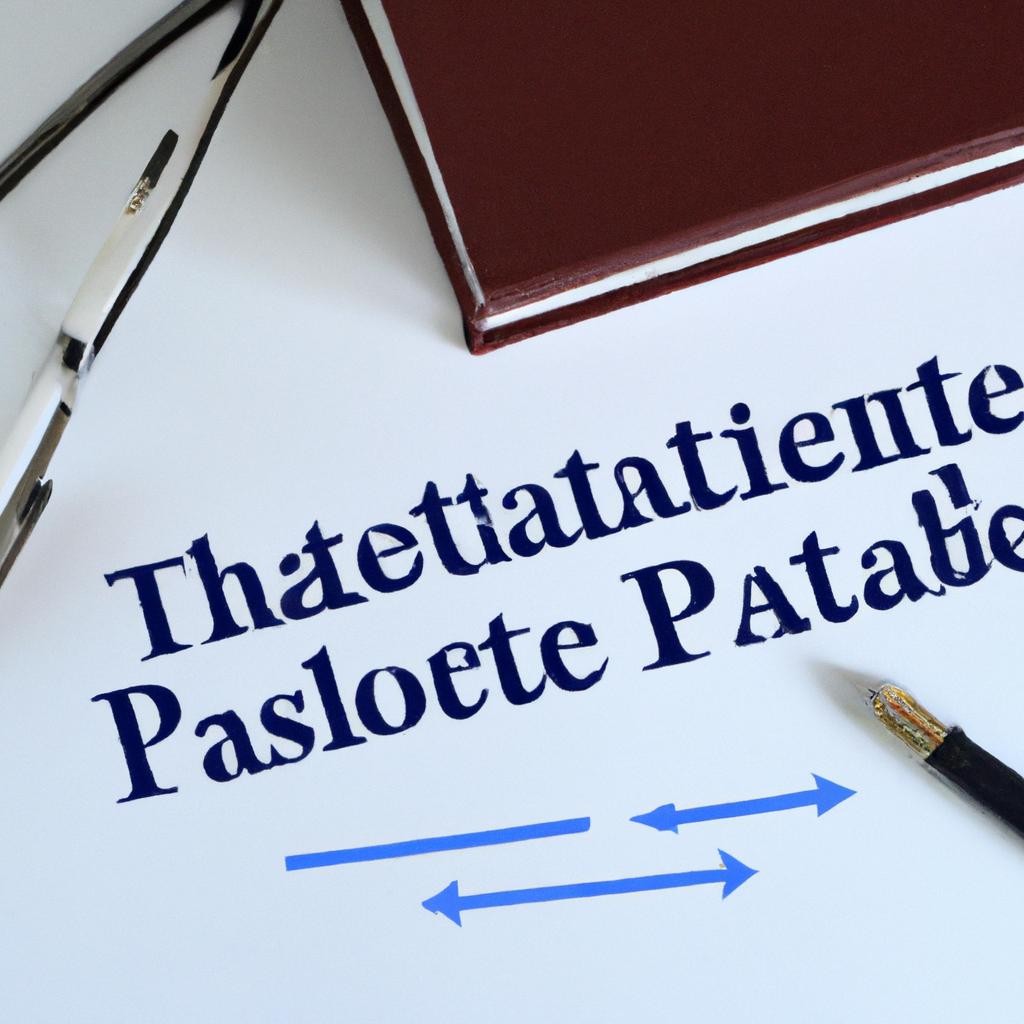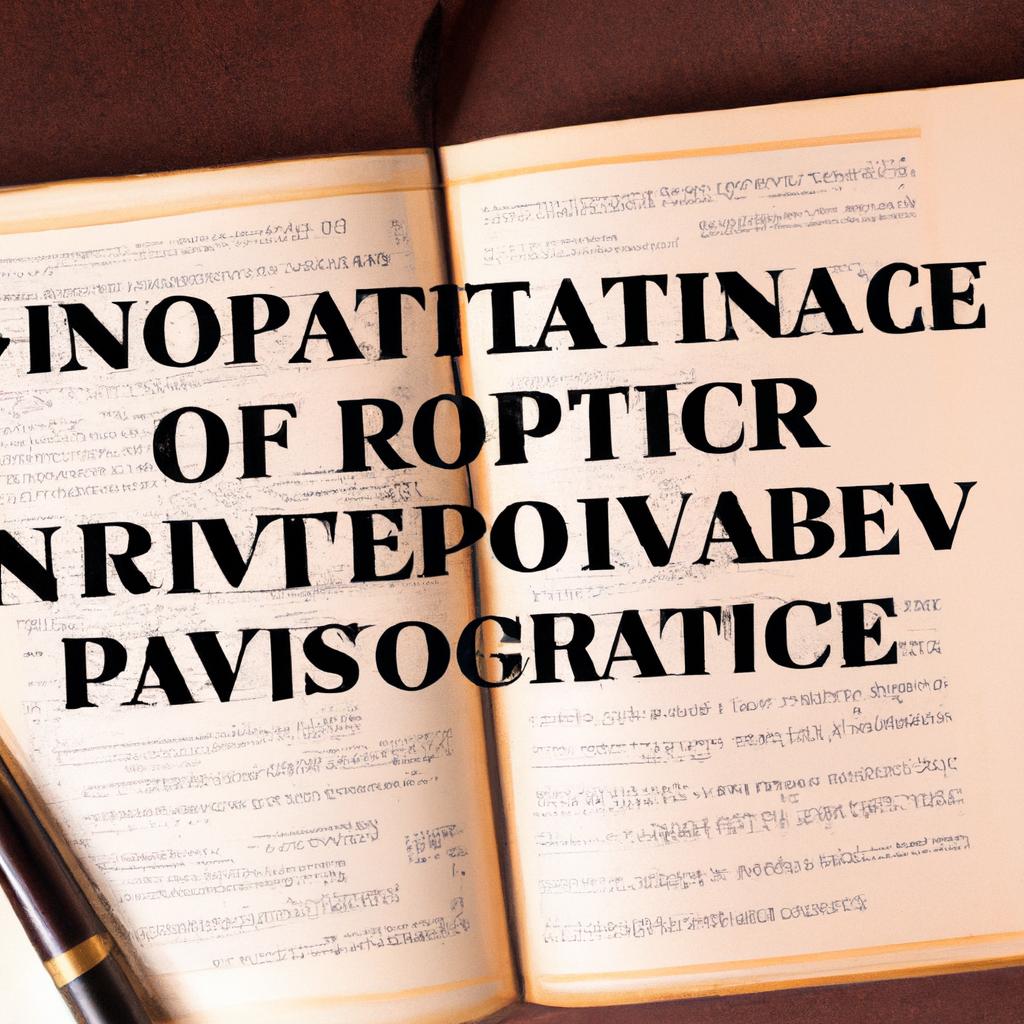Probate, a term often shrouded in mystery, serves as a crucial component in the realm of estate administration. Despite its ubiquitous presence in legal proceedings, many are left wondering: what exactly is probate, and when does it occur? As seasoned practitioners in the field of estate planning, the Morgan Legal Group stands poised to shed light on this intricate process. Join us as we unravel the intricacies of probate, delving into its significance and the circumstances under which it unfolds.
Understanding the Probate Process in Estate Administration
The probate process in estate administration is a crucial step in ensuring that a deceased person’s assets are properly distributed to the intended beneficiaries. Probate is the legal process where a court validates a deceased person’s will, appoints an executor or personal representative to oversee the estate, and ensures that debts and taxes are paid before distributing the remaining assets to the heirs.
Probate typically occurs after the death of an individual who owned assets solely in their name. Some common reasons for probate include:
- The deceased had a will that needs to be validated.
- There are disputes among beneficiaries over the distribution of assets.
- There are creditors seeking to collect debts from the estate.

Key Factors Leading to Probate and When it Becomes Necessary
Probate is the legal process of administering a deceased person’s estate. It involves proving the validity of the deceased’s Will, identifying and inventorying their assets, paying debts and taxes, and distributing the remaining assets to beneficiaries. There are several key factors that can lead to the probate process, including:
- Lack of a valid Will: When a person dies without a valid Will, their assets will be distributed according to state intestacy laws, which may require probate.
- Complex or disputed estates: If there are complex or disputed assets or beneficiaries, probate may be necessary to resolve any issues.
Probate becomes necessary when the deceased person’s assets are held solely in their name and do not pass directly to a beneficiary outside of the probate process. This often occurs with real estate, bank accounts, and other valuable assets. If you are unsure whether probate is necessary for your loved one’s estate, consult with an experienced estate planning attorney for guidance.

Navigating the Probate Process Effectively: Tips and Best Practices
Probate is the legal process through which a deceased person’s assets are distributed to their heirs and beneficiaries. It involves validating the individual’s will, paying off any outstanding debts and taxes, and transferring ownership of property and assets. Probate typically occurs after someone passes away, but it can also be necessary if a person becomes incapacitated and unable to manage their affairs.
Navigating the probate process can be complex and time-consuming. It requires careful attention to detail, adherence to state laws, and proper documentation. To navigate probate effectively, it is essential to seek the guidance of an experienced probate attorney. They can help you understand your legal rights, assist with the preparation of required documents, and ensure that the process is carried out according to the law. Additionally, maintaining open communication with all parties involved and staying organized can help streamline the probate process and minimize any potential delays or complications.
Avoiding Common Pitfalls in Probate Proceedings
Probate is the legal process of administering the estate of a deceased person, resolving all claims and distributing the deceased person’s property under a valid will. Probate proceedings typically occur after someone passes away when they own property solely in their name. During this process, the court validates the deceased person’s will, resolves any disputes, and ensures that the assets are distributed according to the terms of the will.
It’s important to understand the probate process and its potential pitfalls to ensure a smooth and efficient distribution of assets. Common pitfalls in probate proceedings include delays, disputes over the validity of the will, and challenges from creditors. By being proactive and seeking legal guidance from experienced professionals, you can navigate the probate process successfully and avoid unnecessary complications.
Q&A
Q: What is probate?
A: Probate is the legal process through which a deceased person’s estate is settled, including the distribution of assets and payment of debts.
Q: When does probate occur?
A: Probate occurs after someone passes away and their estate needs to be administered. It involves proving the validity of the deceased person’s will, if there is one, and appointing an executor to handle their affairs.
Q: What types of assets go through probate?
A: Assets that are held solely in the deceased person’s name typically go through probate. This can include real estate, bank accounts, and personal belongings.
Q: How long does probate usually take?
A: The length of the probate process can vary depending on the complexity of the estate and any potential disputes among heirs. It can take anywhere from several months to a few years to complete.
Q: Are there ways to avoid probate?
A: Yes, there are ways to avoid probate, such as establishing a living trust, designating beneficiaries on financial accounts, and owning property jointly with rights of survivorship.
Q: What are the costs associated with probate?
A: The costs associated with probate can include court fees, attorney fees, executor fees, and other administrative expenses. These costs can add up and reduce the overall value of the estate.
The Conclusion
In conclusion, understanding probate is essential for anyone navigating the legal waters of estate planning and administration. While the process can be complex and time-consuming, knowing when probate occurs and how it works can help ensure a smooth transition of assets and property to heirs and beneficiaries. Whether you’re planning your own estate or assisting a loved one in the process, having a basic understanding of probate is key to protecting your wishes and ensuring your legacy lives on. Stay informed and prepared, and let probate serve as a guiding light in your estate planning journey.












